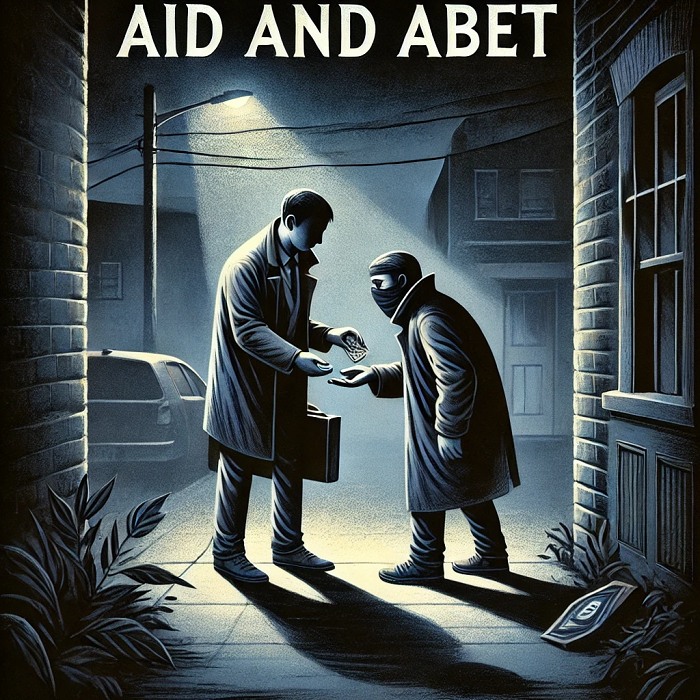Meaning: This idiom refers to helping or supporting someone, especially in doing something wrong or illegal. “Aid” means to help, while “abet” means to encourage or support, particularly in wrongdoing.
Usage in Example Sentences:
- “He was arrested for aiding and abetting a criminal in the bank robbery.”
- “In some cases, even unknowingly aiding and abetting illegal activity can result in consequences.”
- “She was accused of aiding and abetting him in his scheme.”
Origin: The phrase “aid and abet” dates back to the Middle Ages and comes from legal terminology, where it refers to providing help or encouragement to someone committing a crime. It’s often used in legal contexts to describe the action of knowingly assisting in illegal activities.










